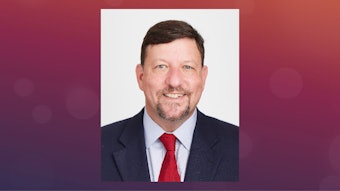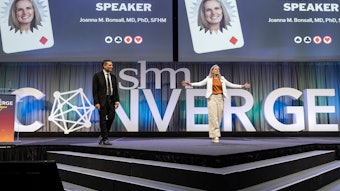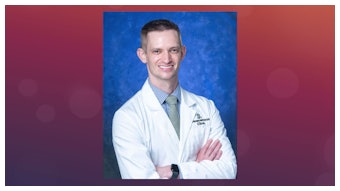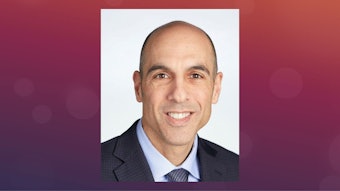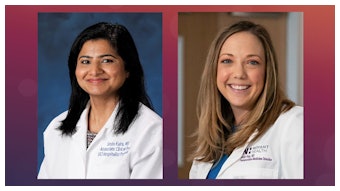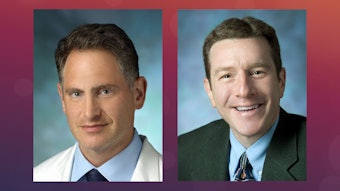The learning never stops for the hospitalist
Charting a course for success at every stage.

Whether you are a seasoned hospitalist or just entering the specialty, there’s always room for growth. Vineet Arora, MD, MAPP, professor of medicine and dean of medical education at the University of Chicago Pritzker School of Medicine, often reflects on her own career as a hospitalist and now as a university dean. Dr. Arora, who is the director of Friday’s session, “The Dean’s List: Lessons for Succeeding in Hospital Medicine,” shares her experience and that of others to bring clarity to the role of hospitalist at every career stage.
In 2021, when the world was still navigating the COVID-19 pandemic, Dr. Arora transitioned from a longtime role as a practicing hospitalist to higher education. At that time, she delivered the keynote address at SHM Converge on the topic of “salvage and sustain,” given the pandemic and the burnout that hospitalists were experiencing. This year, the students she has taught since her first year will graduate. As such, it felt like the right time to focus on success, she said.
“I have spent a lot of time in my current role thinking about those skills that I learned early in my days as a hospitalist with crisis management and patient communication as well as wellness and burnout,” Dr. Arora said. “And I thought about how those things helped me in my current role in higher education. I feel like I’ve come full circle, from survive and salvage to survive, salvage, sustain, and now succeed.”
Here, Dr. Arora shares her top lessons for success.
Lesson No. 1: Find your passion; find a way to fund your passion.
Dr. Arora said she’s often asked is how to find a job with the right work/life balance. Some clinicians mistakenly believe hospital medicine does not afford you that opportunity, she said.
“Early in your career, you don't always feel you can negotiate what you need. You may have found your passion, but sometimes you burn out in service of your passion,” Dr. Arora said. “Look at all the other ancillary things that your hospital provides you beyond salary, including support, work/life balance, and technology.”
Remember, too, she said, that success looks different at each stage of your career. At some point, flexible time with family or pursuing hobbies outside of medicine may be a higher priority than financial compensation or vice versa. It’s a question all hospitalists should ask themselves throughout the entirety of their career.
Lesson No. 2: Avoid tunnel vision. Keep an open mind so you’re not blindsided.
We all experience moments of anxiety in our jobs and can often fixate on a worst-case, doomsday scenario that never comes to be. However, it’s important to prioritize those worries by their frequency and impact and not ignore the potential problems of what’s right in front of you so that you are not blindsided, Dr. Arora said.
“When you look back on that worry, that may not be the thing that's going to get you. It’s the thing you never worried about with tunnel vision and didn't anticipate that may become the problem,” she said. “This is true in life and in hospital care.”
For example, Dr. Arora said sometimes it’s easy to look at your phone and worry about the next disaster that’s going to hit health care. And because you spend so much time worrying about that, you may not see the early signs of a problem brewing in your own organization that you could control. Sometimes it’s the small things that are ignored or not seen that become bigger problems later, she said.
Lesson No. 3: Know and act within your sphere of influence
Building on the above, Dr. Arora said it can be easy for any of us to worry about things that are beyond our control. And that emotion leads to feeling as if you are spinning your wheels, she said.
Know your sphere of influence, she said. Everyone has a sphere of influence that can lead to action. For example, she said many health care professionals are frustrated about the current state of the industry — whether it’s related to lack of support, reimbursement rates, or something else.
“Instead of trying to solve the problem you can’t, solve the problem you can within your sphere of influence,” she said.
Dr. Arora recounted a story of innovation for better documentation that resulted in reducing coding queries at one of the hospitals where she worked.
During the session, Dr. Arora will speak to the uncertainty that exists in our own environments as well as health care in general. With that uncertainty, “it's hard to hard to know where to fit in,” she said.
It’s natural to question what that uncertainty means for your career and your personal life, she explained.
“What does that mean for me, and what should I do? That's the question I'm getting a lot,” she said. “You've got to figure out what your goal is. Is it succession planning and legacy building if you are more senior in your field? That’s a question our entire field needs to think about because we have some giants in hospital medicine, but we've got to train the up-and-comers as well.”
Visit SHM Meeting News Central for more coverage.


